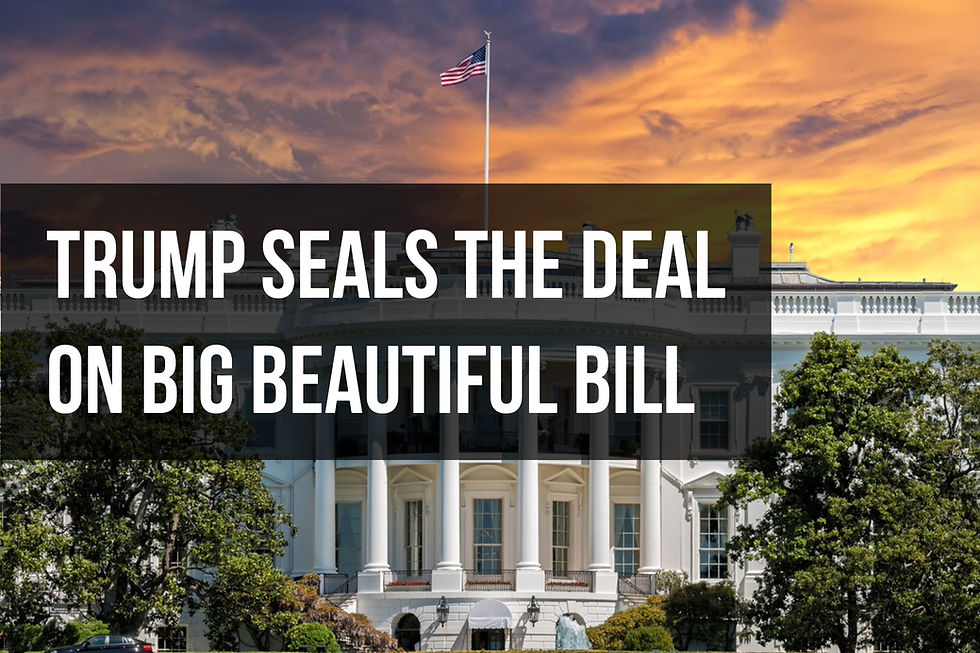- Jul 11, 2025
- 2 min read

On July 4, President Donald Trump signed into law a $3.4 trillion tax and spending bill, marking a major legislative achievement for his administration. The new law extends several tax cuts from Trump’s first term, introduces new incentives for tipped and hourly workers, and implements funding increases for national defense and immigration enforcement.
Passed just ahead of Independence Day, the legislation reflects many of the administration's stated priorities, including economic growth through tax relief, reduced federal incentives for clean energy, and changes to safety net programs. The signing followed weeks of negotiation among lawmakers and was supported by Republican majorities in both chambers of Congress.
Among the bill’s tax components are extended breaks for businesses, including expanded bonus depreciation and immediate expensing for qualified production property. These provisions are intended to incentivize domestic investment, particularly in industries reliant on significant capital expenditures. Additional tax incentives include expanded deductions for families, seniors, and parents, and an increase in the state and local tax (SALT) deduction cap from $10,000 to $40,000 for the next five years.
Small business owners and tax professionals welcomed some of the permanent changes, particularly around domestic research expensing, which replaces the prior five-year window with a lasting benefit. However, questions remain around the implementation and clarity of some new rules, such as definitions related to production activities and eligibility for accelerated recovery.
The bill also introduces significant fiscal changes. Medicaid will see an estimated $1 trillion in reductions through new work requirements for certain adults, co-payments, and limits on federal reimbursements to states. The Congressional Budget Office estimates these changes could impact over 11 million enrollees. Additional reforms tighten eligibility and oversight of food assistance programs.
While supporters of the bill argue that these adjustments promote workforce participation and reduce government spending, others have expressed concern about potential effects on vulnerable populations and rural healthcare facilities.
The legislation also scales back or phases out numerous clean energy tax credits, including those for electric vehicles, wind, and solar projects. Some lawmakers worry this could stall renewable energy investments already underway.
Economic projections from the administration emphasize that tax relief, increased domestic production, and regulatory changes will stimulate long-term growth. However, nonpartisan analysts have raised concerns about the impact on the national deficit.
While the legislation passed without Democratic support, its provisions are likely to remain a topic of political discussion in the months ahead. Lawmakers from both parties have signaled interest in reviewing aspects of the bill, particularly around its long-term fiscal effects and how quickly its benefits and consequences will materialize.
Despite differing views, the bill’s passage represents a major milestone in federal tax and economic policy, with implications expected to unfold over the next several years.
Talley’s team of tax professionals provides comprehensive tax compliance and consulting services so you can preserve, enhance, and pass on your assets and wealth to the next generation. We welcome the opportunity to discuss the current options available for you. For more information, contact us today.



Comments